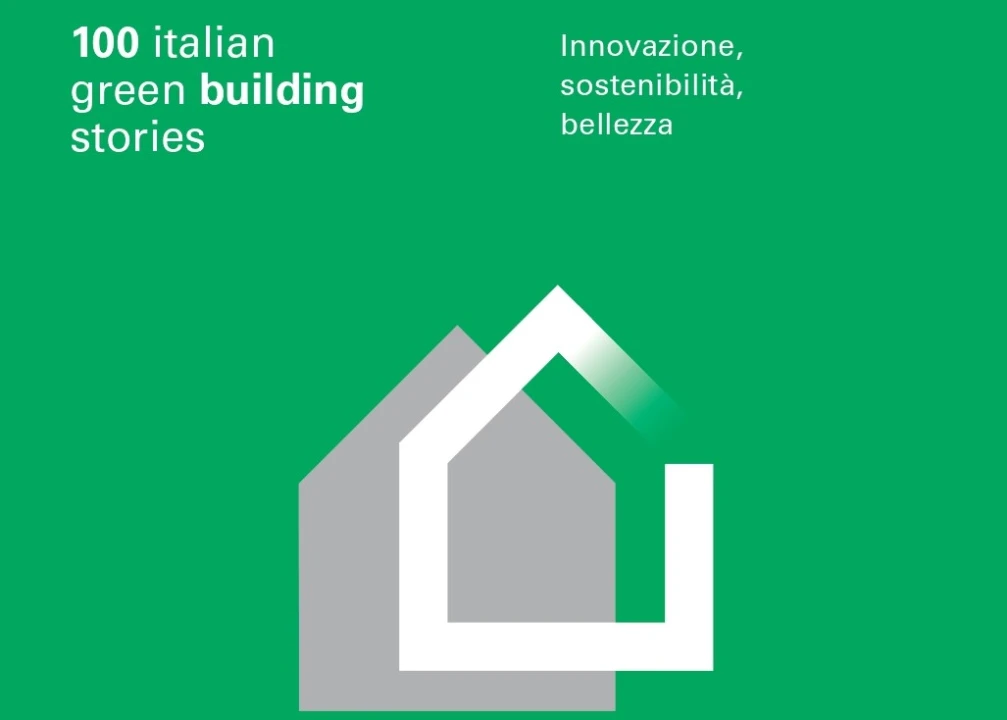“The lesson the pandemic has offered us cannot make us go back to square one. That would be a mistake, a waste of energy, and we wouldn’t have the chance to meet future challenges.” David Sassoli
As David Sassoli, EP President, recalled during the presentation of the Assisi Manifesto, the current crisis has forced Italy to undergo profound transformations necessary to face future challenges. These far-reaching transformations can represent an opportunity to overcome Italy’s long-standing problems and revive its economy on a new basis.
These changes also call for a profound knowledge and technologies renewal in the Italian construction sector, in order to make urban contexts, study, life and work places more accessible, inclusive, less energy-consuming, suitable for the new climatic context, making them more people-friendly. This has been the starting point for the collection of 100 stories of companies, research centres, universities, non-profit organizations and public agencies in the third report of the series on innovation in the Italian construction industry edited by Symbola - Foundation for Italian Quality and Fassa Bortolo.
After having narrated stories about construction 2.0 in the first report and the innovations in restoration in the second one, in the last report we have explored the technologies and solutions for sustainability and circular economy, trying to return - without any claim to completeness - a picture of the industry, showing the energy and talent that are already in the field in Italy.
A series of solutions, technologies and skills, especially those related to architectural design and engineering, which are essential in the new market implemented by the Green Deal, the NRRP and national initiatives such as Ecobonus, Facades Bonus, other building bonuses and Superbonus 110%. The latter is a measure appreciated by the European Construction Sector Observatory for its positive impact on energy efficiency policies.
This is a measure that can certainly be improved - as Europe itself reminds us - in terms of controls reducing the subsidy but stabilizing it over time, expanding it to other sectors and ensuring full access to vulnerable groups. A measure that has worked so far, as demonstrated by the data to 31 December 2021 provided by ENEA and the Italian Ministry for Ecological Transition according to which the deductions related to the Superbonus 110% - expected once the works are completed- have reached 17.8 billion euro.
A shot in the arm for the sector that since the crisis in 2008 had lost about 600 thousand units throughout the supply chain, now recovering with an increase in employees in the first nine months of 2021 equal to 94 thousand units (+7.9%) and jobs equal to 265 thousand units (170 thousand direct units and 95 thousand connected to related sectors) largely related to the new construction sector implemented by the NRRP, the Superbonus and a process of repositioning of companies: in the 2016-2020 period 46,537 companies in the sector (28.7% of the total) have made green investments to improve processes and products with a view to sustainability.
A process that, if pursued and enhanced, could help the energy requalification of the national real estate assets, responsible for about 40% of CO2 emissions, reducing dependency on traditional fossil fuels and making the Italian building industry more modern and competitive. And the evidence is already there.
The stories collected in the report narrate this repositioning and the growing application, at different scales, of the principles of the green economy and the circular economy. For example, industrial efficiencies and symbiosis among different entities have been experimented in order to enhance the by-products of one company or a supply chain, transforming them into new materials for others, while more durable, recyclable materials that are healthier for the environment and human beings are being studied in the companies’ R&D departments. Digital technologies are now applied in different phases of the building process, from design to construction to maintenance, allowing the control of the entire life cycle of the building work with benefits on costs and the environment (see the spread of Design for Manufacturing and Assembly - DfMA).
Construction sites, too, are at the centre of major changes, according to the stories of the companies moving more and more towards the manufacture of prefabricated components. Central to many of the stories is the issue of energy and thermal efficiency, with technologies ranging from the implementation of solutions for the production of energy from renewable sources (such as photovoltaic or micro-wind systems) to innovative hi-tech coatings for the reduction of heat loss.
Technologies and innovations that contribute to the reduction of local pollution and greenhouse gases that have direct effects also on the reduction of the household bills of Italian families. In fact, it is estimated that the cost difference between a traditional apartment and an advanced one in terms of energy efficiency can exceed 2.000 euros per year, in addition to the fact that, as highlighted in a research study of Symbola Foundation and Cresme, the real estate value of a building that has undergone an energy retrofit is much higher than the investment made for the retrofit itself. Water and waste management technologies are very topical, with increasingly integrated solutions: think of the convergence between green areas, facades and water systems, or the new systems to enhance waste management, separation and storage.
The following pages will be narrating the story of a rapidly evolving construction sector, from design to new materials, from construction sites to management and maintenance, confirming once again that the made in Italy brand is a talent that must be defended and strengthened by focusing on innovation, research, sustainability and beauty, and thanks to this talent we have the energy to make our economy more sustainable, and therefore more competitive.
Paolo Fassa - President of Fassa Bortolo
Ermete Realacci - President of Symbola Foundation




